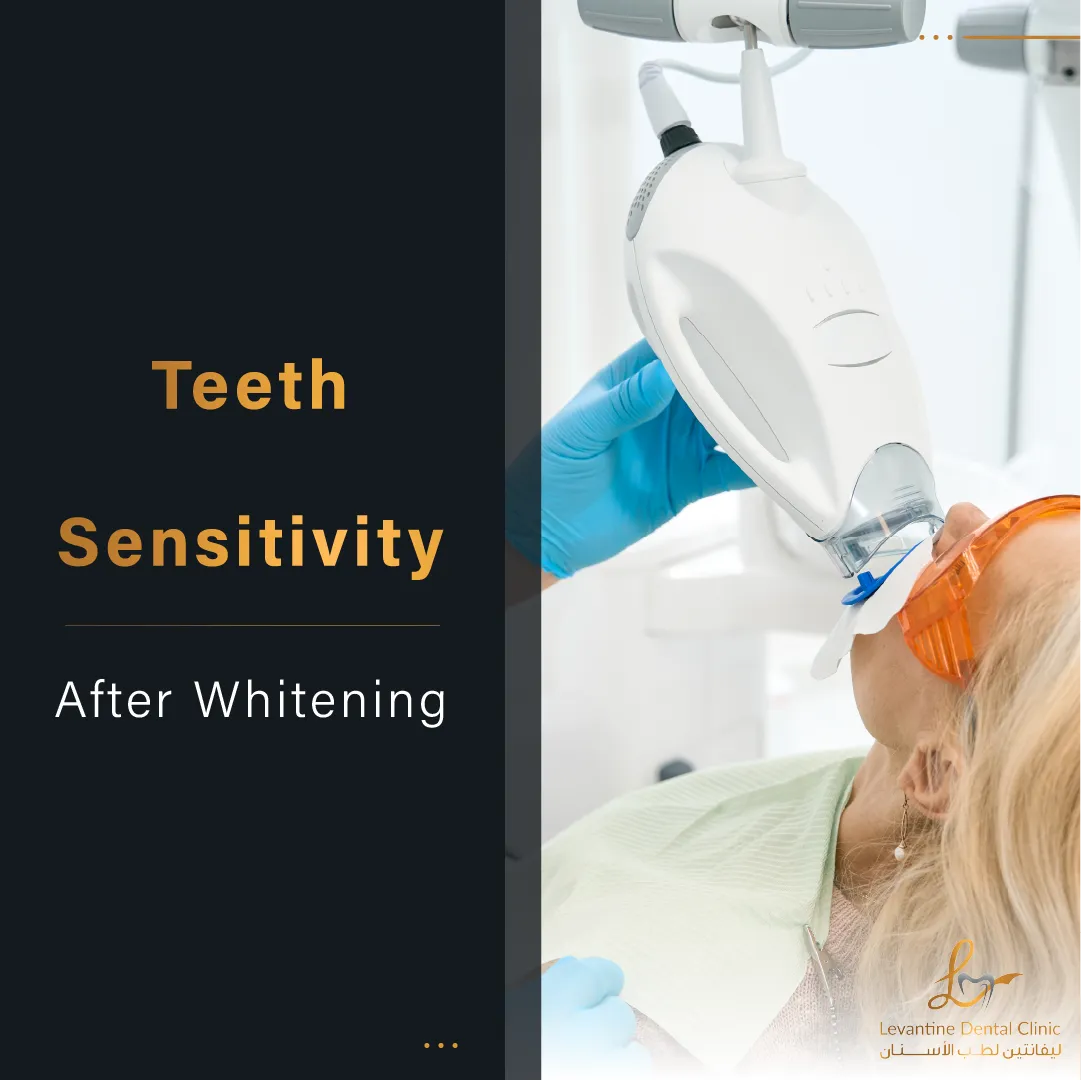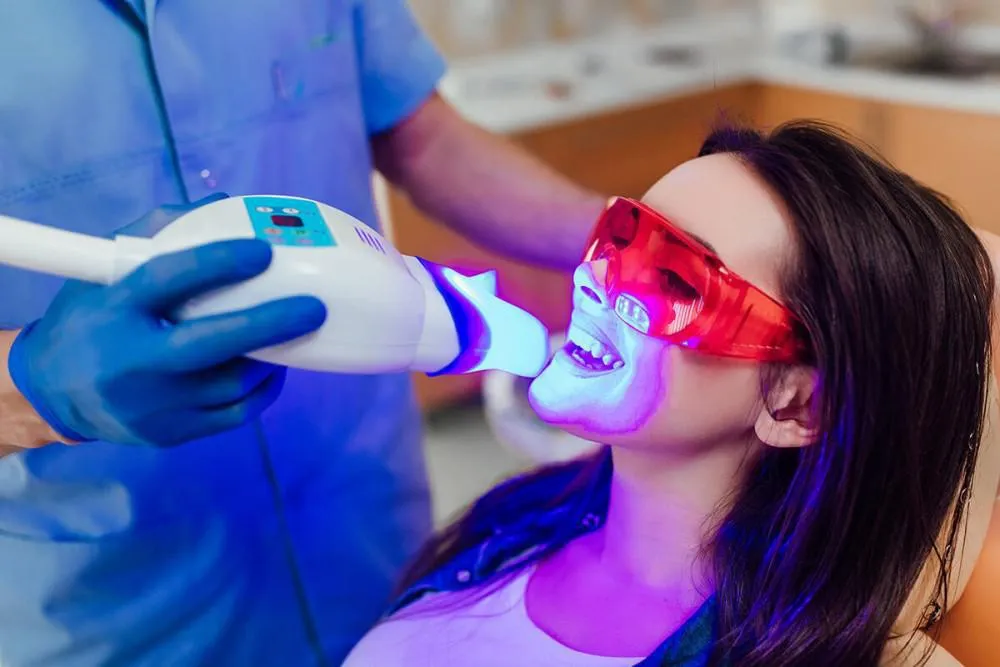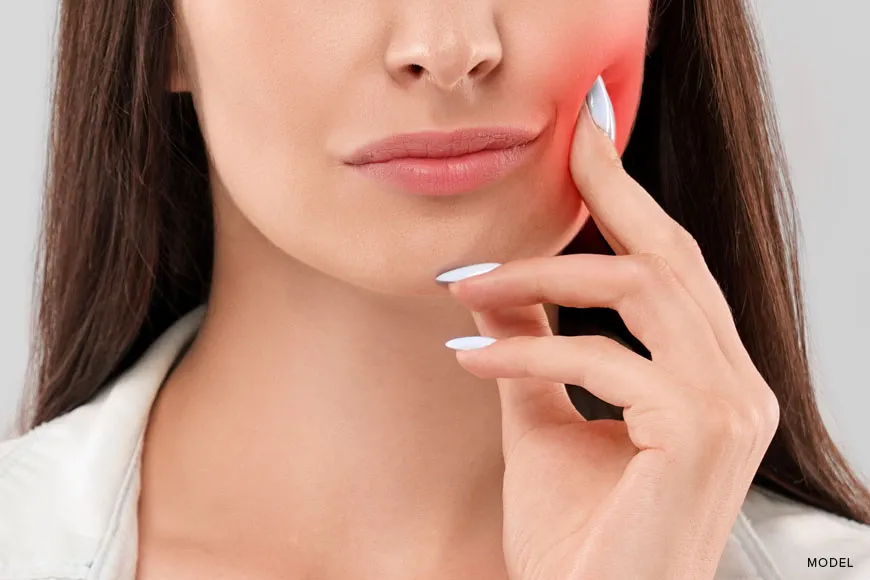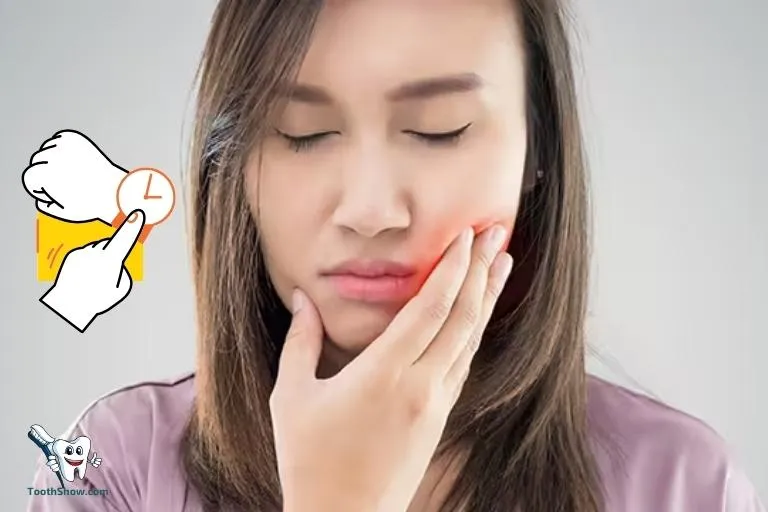What Causes Teeth Whitening Sensitivity?
Teeth whitening is a popular cosmetic procedure, but it can sometimes lead to temporary tooth sensitivity. Understanding the causes of this sensitivity is key to managing and minimizing it. The primary reason for sensitivity is the whitening agents themselves, which penetrate the enamel and reach the dentin. This process can irritate the nerves within the teeth, leading to the sensation of discomfort. It’s important to note that sensitivity doesn’t mean your teeth are being damaged, but rather that the nerves are temporarily stimulated. Various factors influence the degree of sensitivity a person experiences, including the concentration of the whitening agent, the duration of the treatment, and the individual’s natural tooth and gum health.
How Whitening Products Affect Teeth
Whitening products work by using chemical agents to break down stains and discolorations on the surface of your teeth. These agents, typically containing hydrogen peroxide or carbamide peroxide, effectively lighten the shade of your teeth. However, this process can also affect the tooth’s structure, making it more susceptible to sensitivity. These chemicals permeate the enamel, and when they reach the dentin, they can cause the tubules to open. This allows the whitening agent to reach the nerves, leading to increased sensitivity. The strength of the product and the duration of application both impact the level of sensitivity. Professional treatments, which use higher concentrations, might result in more intense and longer-lasting sensitivity compared to at-home kits.
Common Ingredients and Their Impact

The main active ingredients in teeth whitening products are hydrogen peroxide and carbamide peroxide. These chemicals are responsible for the bleaching action that removes stains. The concentration of these ingredients varies based on the type of product and whether it’s used in a professional setting or at home. Understanding the impact of each ingredient is crucial for anticipating and managing potential sensitivity.
Hydrogen Peroxide and Sensitivity
Hydrogen peroxide is a strong oxidizing agent commonly found in professional teeth whitening treatments. Its high concentration is effective at quickly removing stains, but it also increases the likelihood of sensitivity. The chemical reaction of hydrogen peroxide on the teeth can dehydrate them and open up the pores, thus making the nerves more vulnerable. This is why professional treatments, which often use higher concentrations of hydrogen peroxide, might cause more pronounced sensitivity, which can last for several days or even weeks. Careful application and post-treatment care are essential to mitigate these effects.
Carbamide Peroxide Effects
Carbamide peroxide is another common whitening agent, often found in at-home whitening kits. When carbamide peroxide breaks down, it releases hydrogen peroxide, which then whitens the teeth. The slower release of hydrogen peroxide from carbamide peroxide generally causes less sensitivity than directly using higher concentrations of hydrogen peroxide. However, prolonged use of carbamide peroxide can still lead to sensitivity. At-home kits provide a more gradual whitening process, but it’s vital to follow the instructions carefully and avoid overuse to minimize any potential discomfort. It’s essential to consult with your dentist before starting any whitening regimen.
Understanding the Timeline of Sensitivity

The timeline of sensitivity after teeth whitening varies depending on the individual and the treatment. Typically, sensitivity starts shortly after the whitening treatment and gradually decreases over time. The peak of sensitivity usually occurs within the first 24 to 48 hours. However, the experience differs from person to person, so it is essential to understand what to expect. Some individuals may feel a mild tingling sensation, while others experience sharp, shooting pains. Recognizing the typical timeline helps in managing and alleviating the discomfort.
Typical Duration of Sensitivity
The duration of sensitivity after teeth whitening can range from a few days to a few weeks. In most cases, the sensitivity is temporary and diminishes on its own. For at-home treatments, sensitivity usually lasts for a couple of days. However, if you get professional treatments, the discomfort might last for up to a month, but it is less severe. If the sensitivity persists for longer than a month or if it becomes severe, it is important to consult your dentist. They can evaluate your situation and rule out any other underlying dental issues.
Factors Influencing Sensitivity Duration
Several factors impact how long sensitivity lasts after teeth whitening. These include the intensity of the whitening treatment, the health of your teeth and gums, and your personal sensitivity levels. Understanding these factors can help you predict how long the sensitivity will last and the steps you can take to minimize it. Taking these elements into account can help you make informed choices about your whitening journey and how to care for your teeth.
Intensity of Whitening Treatment

The intensity of the whitening treatment plays a significant role in determining the duration of sensitivity. Professional treatments often use stronger concentrations of whitening agents, such as hydrogen peroxide. This can lead to more intense and prolonged sensitivity compared to at-home options, which typically use lower concentrations. The more potent the whitening agent, the greater the impact on your teeth and gums. If you are considering professional whitening, be prepared for potential sensitivity. Your dentist can take steps to manage and alleviate any discomfort, ensuring the most pleasant experience possible.
Tooth and Gum Health
The health of your teeth and gums significantly impacts sensitivity duration. People with existing dental issues, such as cavities, gum recession, or cracked teeth, may experience more pronounced and prolonged sensitivity. The whitening agents can enter the tooth through any existing weaknesses, thereby causing greater discomfort. Before undergoing teeth whitening, it’s essential to have a dental check-up to address any pre-existing conditions. A healthy foundation ensures a better experience and minimizes the chance of prolonged sensitivity. Maintaining good oral hygiene before and after the treatment is also essential to reduce the risk of sensitivity.
Sensitivity Management Strategies
Managing sensitivity after teeth whitening involves a combination of at-home remedies and professional treatments. Employing a holistic approach can significantly reduce discomfort. Simple lifestyle changes, like avoiding trigger foods, and the use of specific dental products can bring much relief. Your dentist is also able to provide specialized treatments if needed. It’s all about understanding the methods that work best for you. A proactive attitude towards care is vital to ensure your teeth-whitening experience is as pleasant as possible.
At-Home Remedies to Soothe Sensitivity

Several at-home remedies can help soothe sensitivity after teeth whitening. These simple methods can provide immediate relief and support the healing process. Many of these remedies can be easily integrated into your daily routine. The goal is to create a soothing environment for your teeth and gums while they adjust to the whitening treatment. Using these at-home remedies can significantly improve your comfort and ensure a smoother recovery.
Using Fluoride Products
Fluoride is a key component in managing teeth sensitivity. Fluoride products, such as toothpaste and mouthwash, help strengthen enamel and reduce sensitivity. Fluoride works by remineralizing the teeth, making them more resistant to external stimuli. Using a fluoride toothpaste specifically designed for sensitive teeth is extremely beneficial, as it helps to block the tubules and reduce nerve irritation. Your dentist may recommend fluoride treatments to use after your whitening treatment to maximize the benefits. Regular use of fluoride products can provide long-term benefits in reducing sensitivity.
Avoiding Acidic Foods and Drinks
Acidic foods and drinks can exacerbate teeth sensitivity, so avoiding them is vital after teeth whitening. Acidic substances erode the enamel, increasing sensitivity and causing discomfort. Common culprits include citrus fruits, carbonated beverages, and vinegar-based foods. For the first few days after your whitening treatment, it’s advisable to limit your intake of these items. Choosing a diet of bland, non-acidic foods can reduce your sensitivity. This simple step helps create a protective environment for your teeth while they are sensitive. Incorporating these dietary changes can greatly enhance your comfort and speed up your recovery.
Professional Treatments for Sensitivity

In some cases, at-home remedies may not be enough to manage teeth sensitivity. Professional treatments from your dentist can offer more targeted and effective solutions. Dentists are equipped with specialized treatments that can provide rapid relief. If your sensitivity is severe or persistent, your dentist will likely recommend in-office procedures to provide you with the care you need. Taking professional measures can ensure you have the best care possible, ensuring the comfort and health of your teeth.
Desensitizing Toothpaste
Desensitizing toothpaste is designed to block the tubules in the dentin, reducing the nerves’ sensitivity. These toothpastes usually contain ingredients such as potassium nitrate or stannous fluoride. These ingredients help create a barrier over the exposed dentin. Your dentist can recommend the best desensitizing toothpaste for your specific needs. Use this toothpaste regularly, and you should start to feel relief within a few days or weeks. Proper use, as per the dentist’s instructions, is essential for maximum effectiveness.
In-Office Fluoride Treatments
In-office fluoride treatments provide a more concentrated dose of fluoride, which can rapidly strengthen enamel and reduce sensitivity. These treatments are typically administered by a dental professional and can deliver immediate relief. The fluoride varnish or gel is applied to the teeth, where it is left for a certain time. The higher concentration of fluoride supports the remineralization of the teeth and shields them from external stimuli. Your dentist may suggest this treatment in conjunction with other methods. This professional method is quick and effective at managing sensitivity, guaranteeing your comfort and dental health.
When to Seek Professional Help

It’s important to know when you should seek professional help for teeth whitening sensitivity. While some sensitivity is normal, certain symptoms indicate that you should consult your dentist. Recognizing these signs can help prevent more serious dental issues. Your dentist can assess the cause of your sensitivity and recommend suitable treatments. They can offer a tailored approach to managing your condition and improving your overall dental health. Seeking professional help when needed is crucial for a healthy and positive outcome.
Signs of Excessive Sensitivity
Excessive sensitivity can indicate that your teeth are under more stress than what’s expected. This level of sensitivity can affect your daily life, such as avoiding hot or cold foods. If your sensitivity prevents you from eating or drinking comfortably, you should consult your dentist. Other signs of excessive sensitivity include sharp, shooting pains, pain that lasts longer than a few weeks, and any discomfort that doesn’t improve with at-home treatments. Experiencing these symptoms should be evaluated by your dentist, especially if they persist, to rule out other underlying dental problems.
Potential Underlying Dental Issues
Sometimes, sensitivity after teeth whitening can be a sign of other underlying dental issues. These issues can range from minor to more serious conditions. Your dentist can help identify these underlying causes and provide the necessary treatment. Conditions such as cavities, gum recession, cracked teeth, and enamel erosion can make your teeth more sensitive. Addressing these issues will not only alleviate your sensitivity but also improve your overall dental health. Regular check-ups are crucial for catching and resolving any dental issues early.
Preventing and Minimizing Sensitivity
Preventing and minimizing sensitivity begins before you even start the whitening treatment. A combination of pre-whitening preparations, choosing the right whitening method, and post-whitening care can significantly reduce the chances of discomfort. Your dentist can help you make informed decisions. Proactive strategies lead to a smoother and more comfortable teeth whitening experience. These combined efforts maximize the benefits of whitening while minimizing any negative effects.
Pre-Whitening Preparation
Preparation is key before you begin any teeth whitening treatment. A comprehensive dental check-up is critical before starting any whitening procedure. Your dentist will check your teeth and gums for any existing dental issues. These pre-existing issues can increase sensitivity. Your dentist might recommend a dental cleaning to remove any plaque or tartar buildup. This creates a cleaner surface for the whitening treatment. They can also suggest using desensitizing toothpaste before the whitening treatment begins. Pre-whitening steps allow you to enjoy the benefits of the procedure without unnecessary discomfort.
Choosing the Right Whitening Method
The method you choose to whiten your teeth greatly affects the level of sensitivity. At-home kits can be less aggressive because they contain lower concentrations of whitening agents. The gradual process means less shock to the teeth. Professional whitening, though offering quicker results, might lead to more sensitivity due to the higher concentrations of chemicals. Your dentist can help you select the most appropriate method. Factors such as your sensitivity level, your dental health, and desired results are all important in this choice. Choosing the right whitening method can help you reach your goals with comfort and confidence.
Post-Whitening Care and Maintenance
Post-whitening care and maintenance play an essential part in reducing sensitivity and maintaining your brighter smile. The care you take following the treatment can significantly influence your comfort and longevity of your results. Avoid the foods and drinks known to stain your teeth immediately after the treatment, which can help to lower sensitivity. The use of fluoride products can strengthen your enamel and reduce sensitivity. Regular dental check-ups and cleanings are also key to maintaining your teeth’s health. Following these steps ensures that your whitening treatment is successful and keeps your smile radiant and healthy.
In conclusion, teeth whitening can cause temporary sensitivity, but it is usually manageable. Understanding the causes, timeline, and management strategies is essential for a comfortable experience. By following the advice above and consulting with your dentist, you can minimize sensitivity and achieve a brighter, healthier smile. Remember that proactive care and attention to your teeth are important for long-term dental health.
